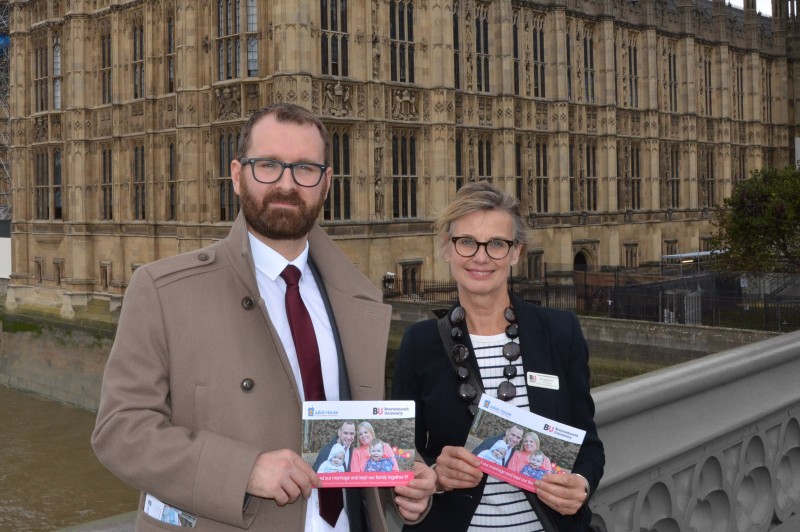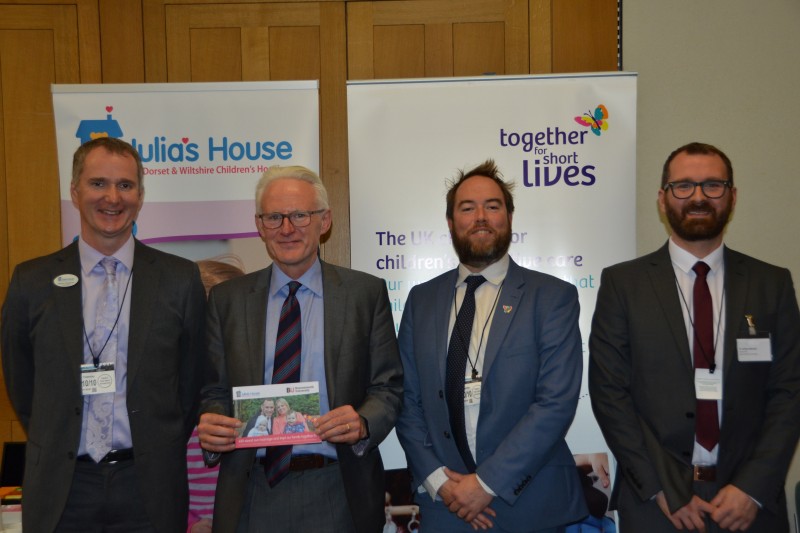Lisa Johnston knows first-hand the strain that caring for a child with complex health issues can have on a family and a relationship.
Her eight-year-old daughter Kitty has complex medical needs. She was rushed into hospital at ten days old and has since been in and out of hospital on a near weekly basis, needing a number of operations.
“Instead of being her mum, I became her full time carer and so that obviously had a knock-on effect on the whole family, so on my other children and my marriage,” said Lisa, from Bournemouth.
“I found it incredibly difficult to keep the family together, just because her needs were so great that it took all of my time and energy.
“I think people don’t understand how much time is taken up when you’re a carer. There’s a lot of emphasis on looking after the child, but not so much on looking after the family – which in some respects I feel is just as important, because without a strong family it all breaks down.”

Lisa’s experiences are echoed by new research conducted by BU PhD student Ashley Mitchell, supervised by Senior Lecturer in Children’s Nursing Dr Jane Hunt, in conjunction with Dorset-based children’s hospice Julia’s House.
The national study, based on interviews with parents who use children’s hospices across England and Scotland, looked at the importance of short breaks for parents and couples caring for children and young people with life-limiting and life-threatening conditions.
The research found that 64 per cent of divorced or separated parents cited having a child with complex needs as a reason for the breakdown of their relationship. Of those couples, 75 per cent had no access to short breaks at the time.
It was launched at an event in Parliament, supported by charity Together for Short Lives, to highlight the impact that having a child with life-limiting or life-threatening conditions can have on families, and the importance of providing short breaks.
Ashley said: “I think what made the research so interesting for me and what motivated me was that I got to work with these families and hear their stories and see the impact that having a child with a life-limiting or life-threatening condition had on their relationships and it just made it very real to me.
“I’m hoping that as a result of the event and the research that the government will start providing more support for short breaks for families and will start to understand the importance of short breaks.”
It is the first time national research into this subject has been conducted, and Chief Executive of Julia’s House Martin Edwards added that he hoped it would provide evidence to support anecdotal stories from families they work with to convince government of the financial and societal impact of short breaks for families.
He said: “We know from the children we look after at Julia’s House that this is a big issue for families, and this research is providing evidence for the first time the extent to which regular respite reduces parental stress and break up.”
Lisa, who shared her story at the Parliamentary event, has used the respite care provided by Julia’s House to spend quality time with her husband and four other children.

“Because Kitty was in and out of hospital on a weekly basis, they just didn’t get any time with me at all, so the respite care was really, really important to be able to switch off and not be a carer,” she said.
“We did actually hit a bit of a crisis point when Kitty was around three, so we were given an emergency package from Julia’s House and that was used solely just to spend time with my husband and try to get my marriage back on track.
“I’m hoping that people don’t have to fight for respite that is really needed, it should just be a given that if you have a child with a complex medical need or a life-limiting condition that you should just get help.”
The Parliamentary event was attended by MPs from across the political spectrum and hosted by Norman Lamb MP.
“I think this work is vitally important,” he said.
“We heard the testimony from Lisa explaining the intense pressures on parents in these circumstances and that if you do nothing to support them, the chances are that family unit will break apart with the most awful consequences for those individuals, but also actually enormous cost to government and to local authorities,” he said.
“But I think if we just leave it down to our own private senses about the value, it’s hard to articulate that to the treasury so the more you can demonstrate through robust research and through proper economic analysis of the savings you could achieve as a result of this intervention and the impact you could have on people’s lives, the better.”



